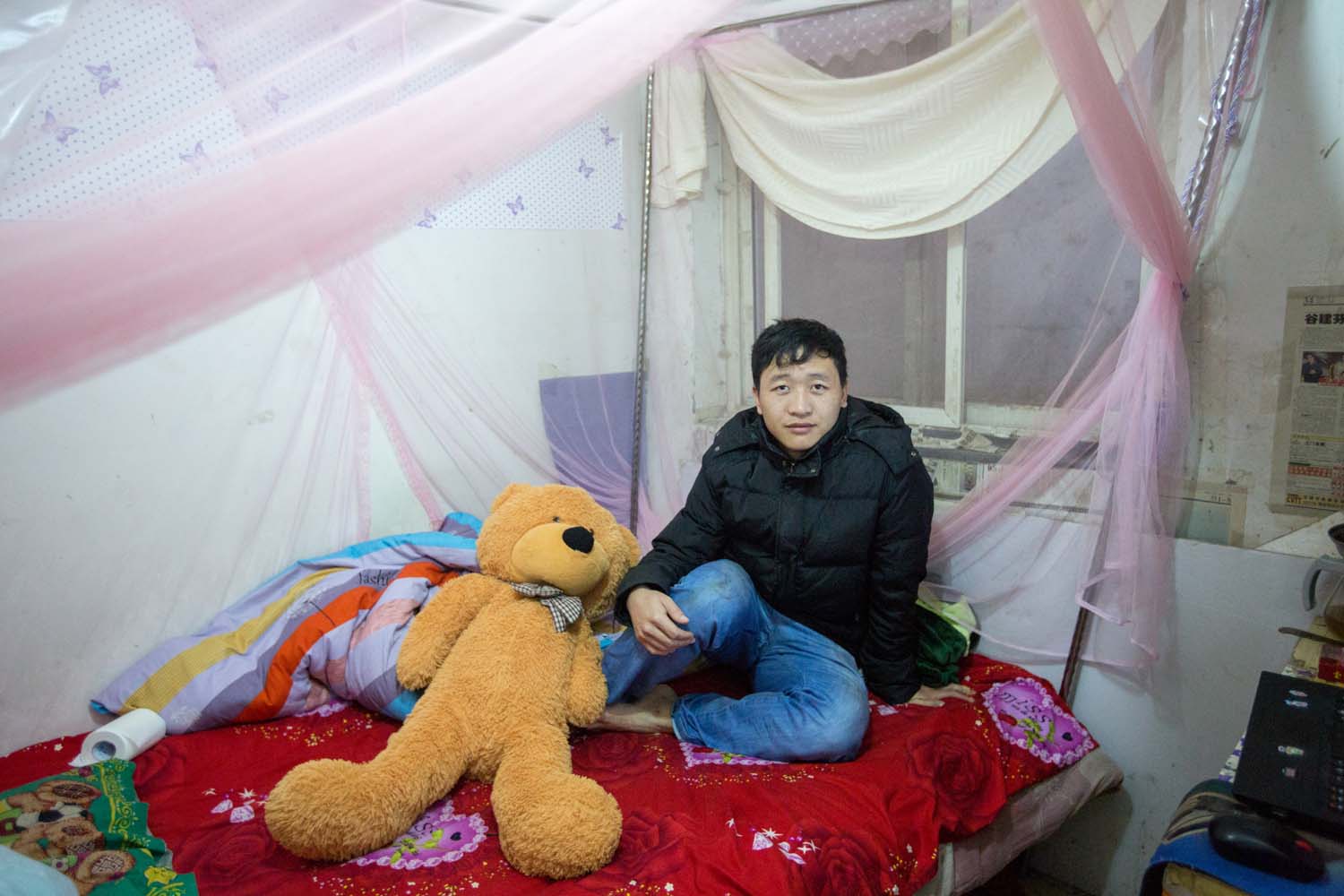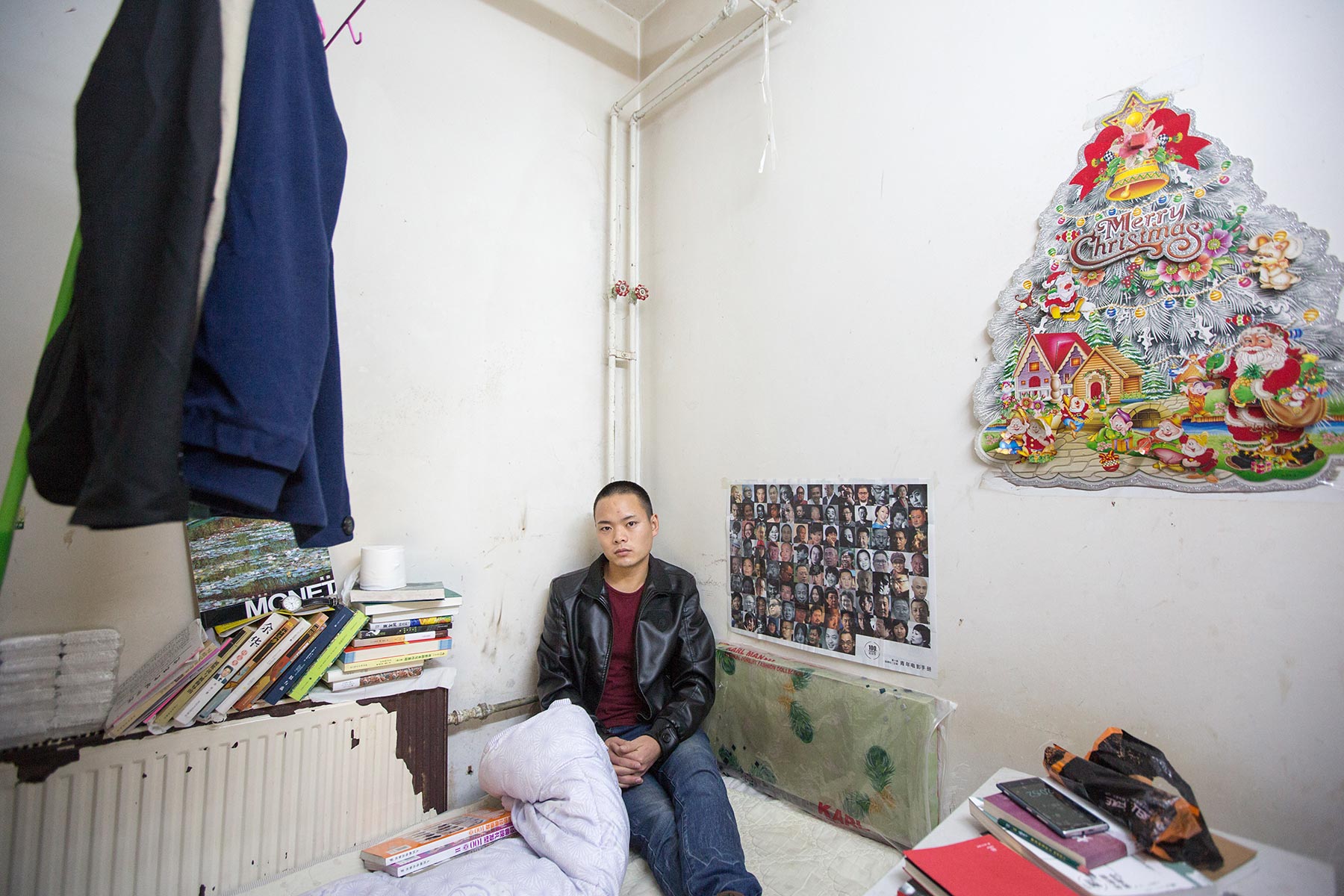BEIJING — Every morning, a metamorphosis takes place below the ground of China's capital. In a world without sun or fresh air, people roll out of bed in windowless rooms, empty bedpans into communal toilets, pay 50 cents for a five-minute shower, ascend concrete stairways to the outside world and transform themselves from residents of the city's most despised housing to strivers, hungry for a piece of the Chinese dream.
These new Beijingers, who number about 1 million, are known as members of the "rat tribe," or shuzu, because they make their homes underground in warrens of small, often-dank rooms that are cheaper than almost anything they can find above ground. Most of the units are technically illegal because the government has decreed that basements and former air-raid bunkers shouldn't be rented out, but like many things in China, they occupy in a gray area. A huge market exists for the basement dwellings — roughly half the price of comparable units above ground — which often causes local officials to turn a blind eye.
Most of the residents are young arrivals, hoping for a foothold in China's most important city, the center not just of politics, but of art, business and alternative lifestyles. They are actors and street sweepers, hair stylists and shampoo girls, newlyweds and in-laws, Buddhists and Christians. Many have dramatic, sometimes-picaresque stories, like the rags-to-riches one of Wei Kuan, a 27-year-old petty criminal turned insurance salesman — with career stops along the way as delivery boy, funeral singer, foot masseur and bathhouse worker.
"I am doing well because I'm scared of being poor," Wei says in his apartment, a roughly 300-square-foot room he shares with up to nine other men. "Many of my colleagues live above ground, but I think it's too comfortable; this place forces me to work harder." Still, Wei, who now makes up to 30,000 yuan (about $4,800; 1 yuan = $0.16) a month — a drastic improvement from his initial monthly salary of 800 yuan — says he plans to move out by the Chinese New Year, in February.
These below-ground rooms owe their existence to two historical events. One is the Cold War, when Mao's China struggled with the Soviet Union for ideological supremacy in the East bloc. In 1969, the same year the two countries fought a bloody border war along the Amur River, Mao ordered people to "dig tunnels deep" as protection against Soviet air raids. In Beijing, 300,000 people took part in the campaign, digging an estimated 20,000 underground bomb shelters.
A few years later, however, Mao was dead and his hardline ideology overturned in favor of the economics-first pragmatism of Deng Xiaoping. The shelters were commercialized, and the government's Office of Civil Defense instructed that they had to turn a profit. By the 1980s, according to a memoir of a senior official in charge of the project, Beijing had 800 underground hostels, as well as underground supermarkets, cinemas and roller-skating rinks. In 1996, the government formalized this shift, passing a law mandating that new buildings contain underground civil-defense shelters, but that they have an economic use as well. This led to the proliferation of for-profit underground housing. Over the years, government agencies contracted out the spaces to private managers, who run them for a profit.
See the full story and multimedia on Al Jazeera America.
Co-published with Creative Time Reports.

Education Resource
Meet the Journalist: Sim Chi Yin
Sim Chi Yin, a Beijing-based photographer and a member of the VII photo agency, discusses her...








